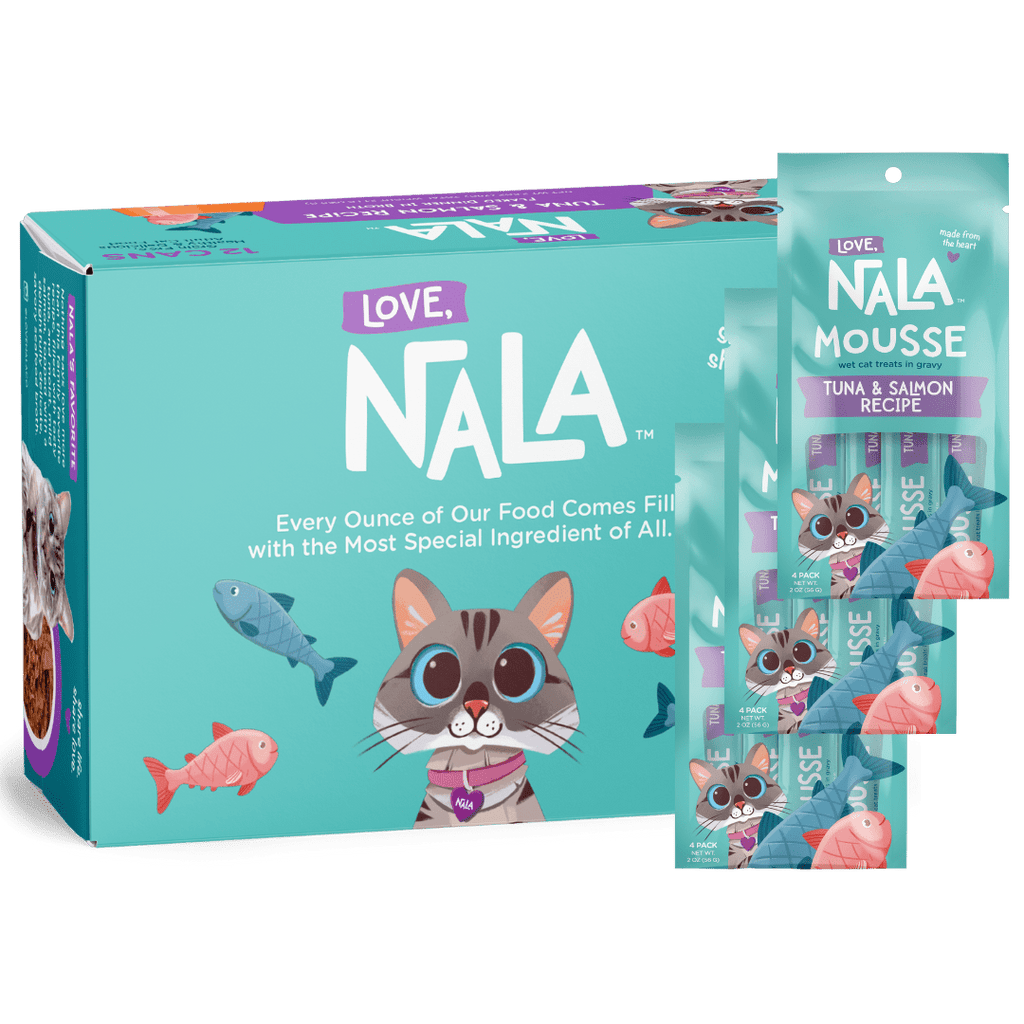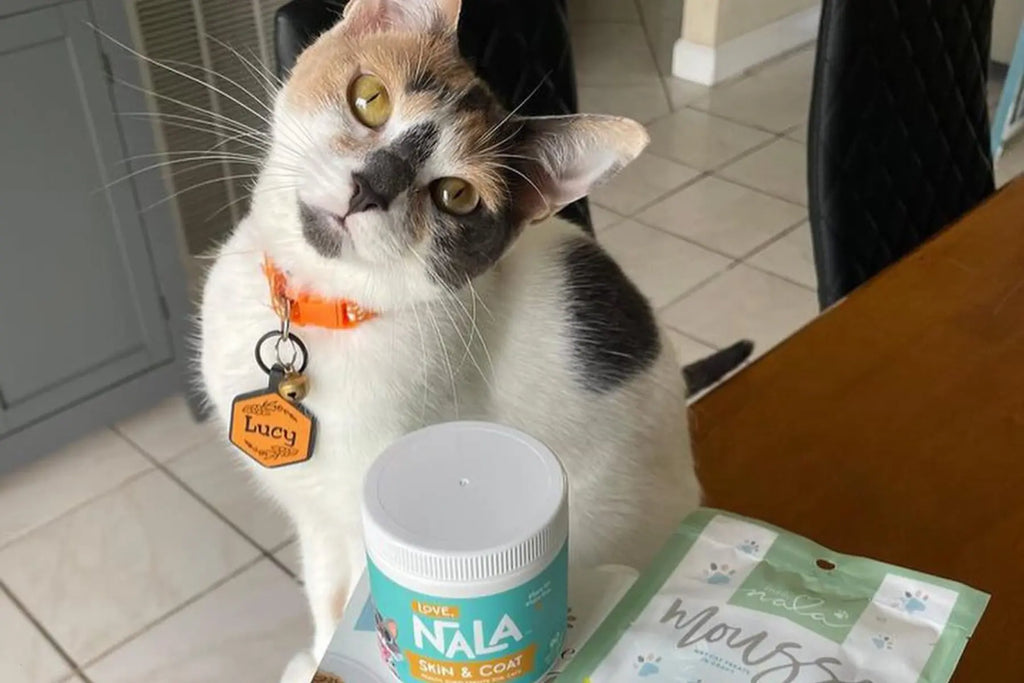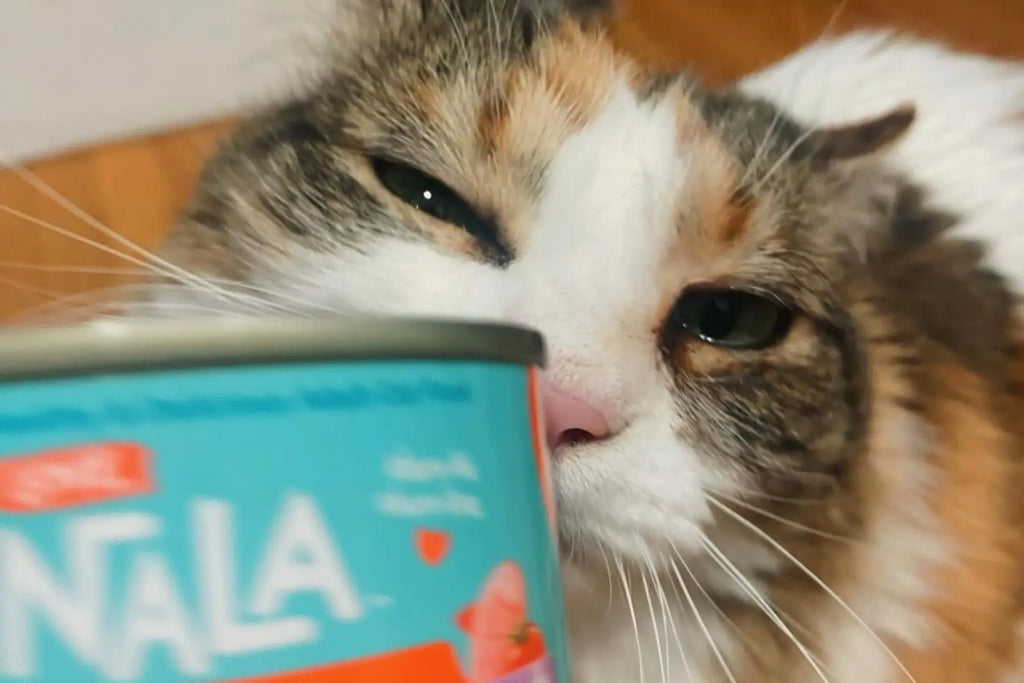Understanding the ingredients in canned adult cat food is crucial for ensuring the health and well-being of your feline friend. Every ingredient plays a role, from providing the necessary nutrients to enhancing the taste of the food. For cat owners, knowing what goes into the food can help in selecting a product that not only satisfies the cat's dietary needs but also addresses any specific health issues like allergies or digestive problems. This knowledge empowers owners to make informed choices that can enhance their cat's quality of life.

Primary Protein Sources in Canned Cat Food
Canned Chicken for Cats
Canned chicken for cats is a staple protein source in many wet cat foods due to its high protein content and palatability. Chicken not only provides essential amino acids necessary for muscle development and maintenance but is also a lean meat that helps manage calorie intake. For cats, particularly those that are overweight or lead less active lifestyles, chicken-based canned food can be an excellent way to fulfill their protein requirements without excessive calories.
Canned Salmon Cat Food
Salmon canned cat food is another popular choice among pet owners, prized for its rich omega-3 fatty acid content. These nutrients are vital for maintaining healthy skin and a shiny coat, as well as supporting cognitive and heart health. Salmon is also highly palatable to cats, making it a useful ingredient for pet food manufacturers who want to appeal to finicky eaters while providing a nutrient-dense meal.
Nutritional Profiles of Common Proteins
Proteins in canned cat food can vary widely in their nutritional profiles. While chicken and salmon are common, other sources like duck and lamb also play significant roles. As always, each protein source offers a unique blend of vitamins, minerals, and amino acids, which are critical for various bodily functions such as immune response, energy production, and overall growth.
Veterinarian Recommendations
They often recommend a diet that includes a variety of protein sources to ensure a balanced intake of amino acids and other nutrients. The best cat canned food typically features a blend of different proteins, which helps cater to a cat's comprehensive nutritional needs. A veterinarian can offer customized guidance based on a cat's unique health requirements, assisting in making sure the food promotes general vitality and good health. Regular consultations also allow for adjustments to the diet based on changes in the cat's health condition or lifestyle, ensuring that the nutritional needs are always met optimally.
Variety of Protein Sources in Quality Canned Cat Food
Beef in Canned Cat Food
Beef is a rich, hearty protein source found in many high-quality canned cat foods. It's packed with essential nutrients like iron, zinc, and B vitamins, which support healthy blood cells and energy levels. Beef can be particularly beneficial for cats needing higher calorie content due to its dense nutritional profile. Including beef in quality canned cat food also provides variety in flavor and texture, keeping mealtime interesting for cats.
Turkey as a Protein Source
This serves as another excellent protein source for felines, offering a lower-fat alternative to beef and chicken. It's especially suitable for maintaining lean muscle mass while controlling overall fat intake. Turkey is also high in selenium and tryptophan, which contribute to immune health and mood regulation, respectively. This makes it a great choice for a balanced and nutritious canned cat food formula.
Fish Varieties in Canned Cat Food
Beyond salmon, other fish like tuna and mackerel are common in canned cat food ingredients due to their high levels of omega-3 fatty acids and quality protein. Each type of fish brings a unique set of flavors and benefits, allowing for a broader spectrum of nutrients. A more balanced intake of nutrients is ensured by this diversity, which also suits a variety of palates.
Unique Nutritional Benefits of Each Protein
Different proteins offer distinct nutritional advantages that can enhance a cat’s diet. For instance, lamb is high in vitamin B12 and iron, crucial for nerve health and energy production, while duck provides a rich source of omega-6 fatty acids, beneficial for skin and coat health. Choosing the best wet canned cat food that incorporates a variety of these protein sources can significantly contribute to the overall health and vitality of cats, supporting everything from muscle maintenance to immune function.
Grains and Vegetables in Canned Cat Food
Role of Rice in Nutrition
Rice is a common ingredient in many types of canned cat food, valued for its nutritional properties that cater to feline dietary needs. Here’s a look at the role of rice in enhancing the nutrition of canned cat food:
- Digestibility: Rice is particularly favored for its gentle impact on the digestive system, making it a prime choice for cats with sensitive stomachs or those recovering from gastrointestinal upset. Its easily digestible nature ensures that it can be absorbed without causing strain or discomfort, which is crucial for maintaining the overall health of cats, especially those with chronic digestive issues. Including rice in cat food helps provide a balanced diet that supports easy digestion.
- Energy Production: Rice serves as a valuable source of carbohydrates, which are essential for fueling a cat’s active lifestyle. The energy derived from rice is quickly metabolized, providing cats with a steady supply of vitality that supports everything from play to exploration. For younger, more energetic cats, this means rice is a great way to keep their energy levels up so they can still perform everyday tasks.
- Weight Management: With its low-fat content and ability to act as a dietary filler, rice is excellent for managing the weight of cats. It helps create a feeling of fullness without adding excessive calories, which is crucial for controlling the weight of overweight cats or those prone to obesity. se of this characteristic, it's a great addition to a diet plan for managing weight and preventing health problems associated with obesity.
- Gluten-Free: For cats with gluten allergies, rice offers a safe and hypoallergenic alternative. It does not contain gluten, unlike some other grains used in pet foods, such as wheat. This makes rice-based cat food a suitable choice for maintaining the health of cats with gluten sensitivities or allergies, ensuring they receive their necessary nutrients without risk of allergic reactions.
Its role in promoting digestibility, providing energy, aiding in weight management, and offering a gluten-free option makes it a versatile and valuable ingredient. By choosing cat food with rice, pet owners can ensure their feline friends receive a diet that supports their health and well-being.

Benefits of Peas in Cat Food
Peas are frequently used in best-canned cat food for their high protein and fiber content. They serve as an excellent supplement to animal proteins, providing essential amino acids and helping to promote a feeling of fullness. Peas also contain antioxidants, which protect against oxidative stress and inflammation. Their inclusion in cat food supports overall health, contributing to a stronger immune system and a healthier digestive tract.
Carrots for Balanced Nutrition
Rich in beta-carotene, which the body converts into vitamin A, carrots are crucial for maintaining good vision and immune function. They also provide dietary fiber, which aids in digestion and helps maintain bowel health. The natural sweetness of carrots makes them appealing to cats, enhancing the palatability of their meals.
Digestive Benefits of Vegetables
Incorporating vegetables like sweet potatoes, pumpkin, and broccoli in best-canned chicken for cats not only diversifies the flavor profile but also boosts the nutrient content. These vegetables are rich in vitamins and minerals essential for comprehensive health, such as vitamins C and K, potassium, and magnesium.
High Protein Canned Cat Food
Avoiding Unnecessary Fillers
Unnecessary fillers in cat food are ingredients that offer little nutritional value and are often used to bulk up the product inexpensively. These can include items like corn, wheat, and soy, which might cause digestive issues or allergies in some cats. Here are several reasons why high-quality best canned wet food for cats should avoid these fillers:
- Allergenic Potential: Some common fillers like corn, wheat, and soy are known allergens that can trigger adverse reactions in cats. These reactions can range from mild symptoms such as itching and rashes to more severe conditions like gastrointestinal upset. Continuous exposure to such allergens can compromise a cat’s immune system and overall health.
- Low Nutritional Value: Fillers are typically used to increase the volume of the cat food without enhancing its nutritional profile. This means that while the cat's stomach might be full, their nutritional needs are not being adequately met. Essential nutrients like proteins, vitamins, and minerals are often scarce in foods laden with fillers, which can lead to nutritional deficiencies and related health problems over time.
- Digestive Health: Since cats are obligate carnivores, their digestive systems are optimized to process meat rather than carbohydrates. Fillers that are high in carbohydrates not only challenge this natural dietary preference but also contribute to issues like obesity. A diet high in inappropriate fillers can strain a cat’s digestive system, leading to chronic health issues.
Understanding these issues can help cat owners make better choices when selecting food for their pets. By choosing cat food without unnecessary fillers, owners can ensure their cats receive the highest quality nutrition that supports a healthy, active, and long life. Remember, the health of our pets starts with what we choose to put in their bowls.
Vitamins and Minerals in Canned Cat Food
Importance of Taurine
Taurine is an essential amino acid that cats must obtain from their diet, as they cannot synthesize it on their own. This compound is crucial for various bodily functions, including vision, heart function, and reproduction. Best canned cat food includes adequate levels of taurine to prevent deficiencies that can lead to serious health issues such as dilated cardiomyopathy and reproductive problems. Ensuring your cat's food contains taurine is a critical aspect of their overall dietary health.
Calcium and Phosphorus for Bone Health
Calcium and phosphorus play vital roles in maintaining strong bones and teeth in cats. These minerals must be in a balanced ratio to be effective without causing harm. An excess of either can lead to mineral deposits in the body, potentially causing damage. Quality canned cat food is formulated to have the correct balance of calcium to phosphorus, which supports bone health and prevents common health issues such as bone fractures and dental problems.
Selecting the Best Canned Cat Food
Canned Food for Kittens
Kittens have unique nutritional needs to support their rapid growth and development. The best-canned food for kittens is specially formulated to be rich in protein, essential fats, vitamins, and minerals that are crucial during the early stages of life. These foods typically contain higher levels of DHA to support brain development and are denser in calories to meet the energy demands of playful, growing kittens.
Options for Special Dietary Requirements
Cats with special dietary needs, such as those with kidney disease, diabetes, or allergies, require specific diets. The best-canned food for cats with such conditions is designed to address these health issues without compromising on nutritional value.
Reading and Understanding Labels
An essential skill for cat owners is the ability to read and understand food labels. Best canned wet food for cats will have labels that list all ingredients, nutritional content, and feeding guidelines. Understanding these labels helps in making informed choices about the quality of the food and its suitability for their cat’s specific health needs.

Selecting the right canned cat food involves more than just picking a flavor that your cat enjoys. It's about understanding the nutritional value each ingredient offers and how it contributes to your pet's overall health. Proteins like chicken, salmon, and turkey not only satisfy taste preferences but also provide essential nutrients that support muscle maintenance, immune health, and more. Including a variety of protein sources, along with beneficial grains and vegetables like rice and peas, ensures a balanced diet rich in necessary vitamins and minerals. Furthermore, avoiding unnecessary fillers and understanding food labels can significantly enhance the quality of your cat’s diet. By investing time in selecting high-quality canned food, cat owners can effectively support their furry companions' health, vitality, and longevity.




















